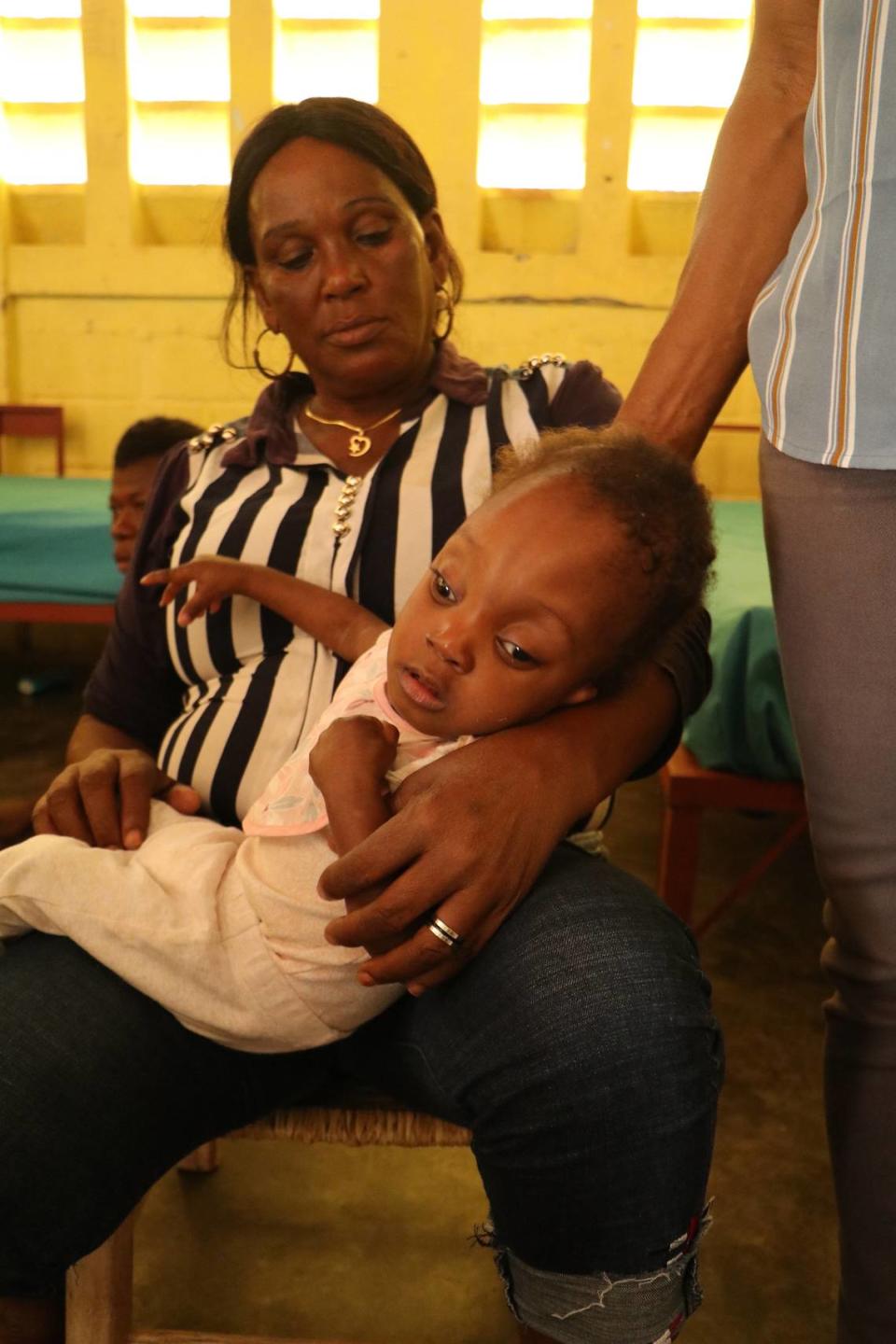Haiti’s government must step up and rescue 62 disabled children from gang violence | Opinion
- Oops!Something went wrong.Please try again later.
Haiti’s gang violence has no shortage of victims: Women and girls who are raped, men and boys recruited into a life of crime, Christian missionaries taken hostage, in fact, an entire nation is under siege.
And what little government there is in the country has been unable protect its citizens from the chaos.
Now, gangs are targeting a new group of vulnerable people: 62 disabled children living in an orphanage called HaitiChildren, outside Port-au-Prince. This time, there are ways to protect these most helpless young ones. But Prime Minister Ariel Henry has yet to take charge of finding the best approach.
He’s been silent. He needs to step up and speak up, especially since he is a medical doctor.
Two years after the assassination of President Jovenel Moïse, the violence in Haiti, by all accounts, grows worse daily.
On Tuesday, President Joe Biden called on the U.N. Security Council to quickly pass a resolution that will authorize a multilateral force to deploy to Haiti as it battles armed gangs controlling much of its capital, Port-au-Prince, warning that time is running out to act.
There is also an urgency to addressing how best to protect the disabled kids in an orphanage. They matter, too.
Offer from Jamaica
A Sept. 10 article by Miami Herald Caribbean Correspondent Jacqueline Charles detailing the children’s plight has resonated in Miami and beyond.
The central question is how to rescue the children, whom the Haitian gang leaders have as much said should be killed because they are “defective”?
There was some good news. A charity run by a renowned Catholic priest in Jamaica had announced in June it would care for them until things improve in Haiti. The children just had to be flown ti their temporary home.
As of today, the fate of the targeted children continues to hang in the balance.
Unfortunately, Haiti has never been a place of easy or quick answers.
In this case, however, speed is of the essence. The effort to transfer the disabled Haitian children to safety in Jamaica after three died because gangs kept them from reaching medical care, appears to be off the table, according to the head of Haiti’s child welfare agency. She reprimanded the orphanage for not reporting the recent deaths.
Arielle Jeanty Villedrouin, the director of Haiti’s Institute of Social Welfare and Research, says that temporarily relocating the children to Jamaica would set a bad precedent.
In a note to the Miami Herald, Villedrouin said: “It is up to the Haitian state to determine the best approach to respond to this complex situation, taking into account the protection of children and respect for national and international laws.”
OK, Haiti wants an internal solution to this orphanage problem. Fine, find one, instead of putting up roadblocks.
Three have died
Because of gang harassment, three children in the orphanage died last month as they were being rushed to a hospital to see a specialist about their uncontrollable seizures. Gang members blocked the road and forced the vehicle to turn back.
The Herald’s Charles told the Editorial Board she has asked Villedrouin, in a country lacking healthcare and specialists, where these especially vulnerable children should be taken or hidden. And what happens when the gangs occupy that territory, as they have done area by area?
Here’s another question: Where is Prime Minister Ariel Henry on this dire situation? Henry not only is Haiti’s current caretaker leader, he is also, of all things, one of Haiti’s top physicians and neurologists.
He is the very specialist these disabled children need to see in many cases.
As a doctor, Henry is acutely aware of what it means to have children so severely disabled sheltered in a caring, safe and nurturing environment.
Yet, there are no signs that Henry, who was advised of the children’s situation in June, is addressing it.
By acquiescing to the head of his child welfare agency, no matter how well-intentioned, Henry is derelict.
Recently, heavily armed warring gangs have set up near the orphanage and cut off the safe passage, kidnapped staff and invaded the facility, threatening to put the kids “out of their misery,” according to co-founder Susie Krabacher, an American who lives in Colorado. Such chilling words.
Haiti is a country on fire. Finding a solution for the lives of 62 disabled kids can easily fall under the radar, but that should not be the case.
How a nation cares for its most vulnerable has always been the most telling of its core values.


